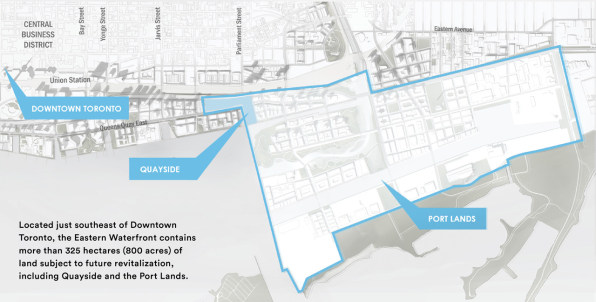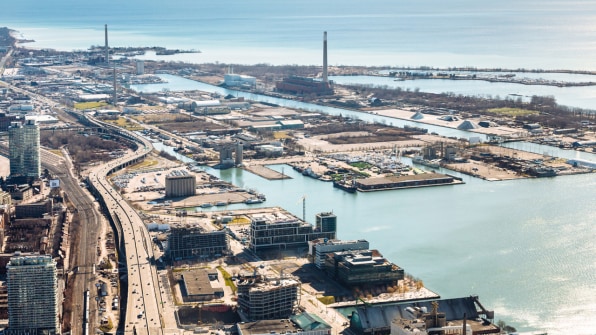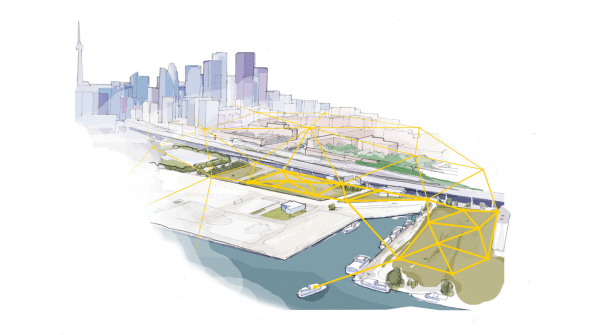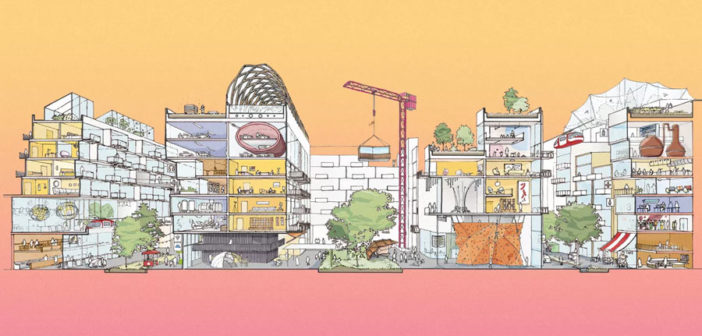Can Alphabet and Sidewalk Labs produce great urban design? Toronto is about to find out.
![Sidewalk will spend $50 million on the initial stages developing this new neighborhood, called Quayside, and plans to move Google’s Canadian headquarters to the development to kickstart its growth. [Image: courtesy Sidewalk Toronto]](https://assets.fastcompany.com/image/upload/w_707)
![It plans to test new architectural construction technology, too. [Image: courtesy Sidewalk Toronto]](https://assets.fastcompany.com/image/upload/w_707)
![It’s the culmination of years of planning from the Alphabet subsidiary. [Image: courtesy Sidewalk Toronto]](https://assets.fastcompany.com/image/upload/w_707)
![“The reality is, you can produce all these documents, but you need an actual city,” Schmidt said on stage. “You actually need some land.” [Image: courtesy Sidewalk Toronto]](https://assets.fastcompany.com/image/upload/w_707)
![[Image: courtesy Sidewalk Toronto]](https://assets.fastcompany.com/image/upload/w_707)
![[Image: courtesy Sidewalk Toronto]](https://assets.fastcompany.com/image/upload/w_707)
Since its inception, Sidewalk Labs–the Alphabet subsidiary devoted to urban technology–has talked about building a “smart city” to test its ideas. Today, Alphabet CEO Eric Schmidt and Sidewalk Labs CEO Dan Doctoroff were joined by Canadian Prime Minister Justin Trudeau to make good on those threats, announcing a plan to develop Sidewalk Toronto: A 12-acre urban development along Toronto’s waterfront. “The reality is, you can produce all these documents, but you need an actual city,” Schmidt said on stage. “You actually need some land.”
Sidewalk will spend $50 million on the initial stages developing this new neighborhood, called Quayside, and plans to move Google’s Canadian headquarters to the development to kickstart its growth. Quayside will be, “a new kind of place. . . where new solutions can be launched, advanced, and coordinated at scale,” Doctoroff said. The company won an RFP for the project run by Waterfront Toronto, a public group focused on revitalizing the city’s Lake Ontario waterfront. What kinds of urban tech does Sidewalk hope to develop in this beta-city? The company describes testing new architectural construction technology, new types of energy systems that have a neutral or positive footprint, as well as self-driving car technology and other transit options that “are more affordable, safe, and convenient than the private car.”

Eventually, the hope is that Quayside’s development will scale to a much larger–800 acres in all–piece of undeveloped land nearby to attain the neighborhood-sized development Alphabet has hinted at in the past. But first, the company says, it plans to spend the next year doing community outreach and planning for Quayside. On the agenda? Infrastructure, transit, housing, retail, and “establishing clear governance policies related to data protection and privacy.”

Alphabet subsidiary Google has run into trouble over privacy with the Canadian government in the past. In a document about data and privacy in the new neighborhood, Alphabet and Sidewalk described its goals, including ubiquitous connectivity and sensors, and APIs that allow developers and residents to interact with the neighborhood’s digital layer. These features, the companies write, will be developed “in close consultation with the local community and independent Canadian privacy experts and advocates.”

In fact, Alphabet and Sidewalk say they plan to use a design standard that was developed by Canadian and Dutch scientists in the 1990s, called Privacy By Design. Technically, it’s a framework for engineers and designers building any kind of product. The idea is that privacy should be the first step in any process–the natural default, not a protection you build into your product after the fact. Though the idea has been around for more than two decades, PBD has gained steam in recent years as concerns over security and privacy have grown.Much has changed about our world in the three years since Sidewalk spun off from Google proper. “Smart” no longer has the utopian sheen it once did; questions about surveillance, privacy, security, and ethics face every major tech company that shapes our world, Alphabet included. Quayside could be a chance for Sidewalk to put the technocratic urban development that emerged in post-9/11 New York, under Michael Bloomberg and his deputy mayor, Dan Doctoroff, now Sidewalk’s CEO, to a more complete test–and prove that a partnership between cities and tech companies can produce “people-centered urban design,” as the company puts it. Without a doubt Alphabet–a company worth half a trillion dollars–is capable of building a neighborhood. We’ll have to see how that neighborhood prioritizes people over data.
–
Image: courtesy Sidewalk Toronto
This article first appeared in www.fastcodesign.com
Seeking to build and grow your brand using the force of consumer insight, strategic foresight, creative disruption and technology prowess? Talk to us at +9714 3867728 or mail: info@groupisd.com or visit www.groupisd.com




